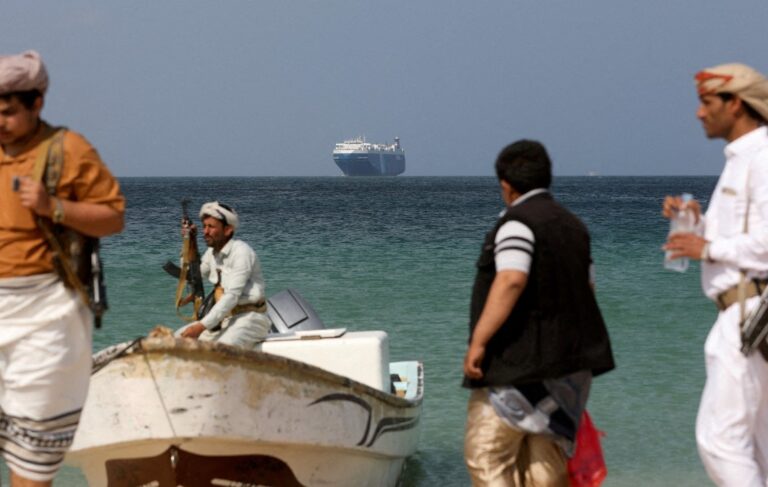Recently, the term “Houthi” has become a central topic in the global media. But who are the Houthis? This Yemeni rebel group, known for its military actions and ideology, has attracted global attention for its attacks in the Red Sea and the Suez Canal, crucial routes for international trade.
Table of Contents
Who are the Yemeni Houthis and who is their leader
Abdul-Malik al-Houthi, better known as Abu Jibril, is the political and religious leader of the Houthis. Born in 1979 in Saada, northern Yemen, Abdul-Malik comes from an influential family that also included Hussein al-Houthi, founder of the movement and member of the Yemeni Parliament. After Hussein’s death, Abdul-Malik took his place at the helm of the movement.
The Houthis have built their ideology on opposition to Israel and the United States. Thus joining a triad known as the “axis of resistance,” which includes Hamas in the Gaza Strip and Hezbollah in Lebanon.
The movement gained further notoriety in 2014, when a military coalition led by Saudi Arabia intervened in Yemen to thwart their rise to power.
Who invaded Yemen
Saudi Arabia’s intervention in Yemen, which occurred in an attempt to counter the rise of the Houthis, triggered a devastating civil war. Thus leading to the deaths of hundreds of thousands of people and causing serious humanitarian crises.
Recent negotiations between the Houthis and Saudi Arabia have generated a glimmer of hope for peace in the region, with Saudi recognition of the Houthis’ right to govern the northern part of Yemen. This opening towards a dialogue could represent a crucial step towards resolving the conflict.
Initially a small group of rebels, the Houthis have received significant funding over time. Especially from Iran, a key ally in their fight.
These funds have been instrumental in enhancing their military arsenal. Thus allowing them to equip themselves with long-range drones and anti-ship ballistic missiles. Thus significantly increasing their offensive and defensive capability in the context of the Yemeni conflict.
The Houthi maritime attacks
The Houthis have justified their attacks in the Red Sea as a way to protest Israel’s actions in Gaza. And to show solidarity with the Palestinian people. These actions have included attacks on ships heading to or departing from Israel.
The Houthis have conducted several attacks against commercial ships in the Suez Canal. One of the most relevant episodes was the seizure of the Galaxy Lander ship, diverted to a Yemeni port with a predominantly Filipino crew on board.
Iran, a known supporter of the Houthis, has played a crucial role in providing financial and military assistance to the group. This support has allowed the Houthis to improve their warfare capabilities and exert significant influence in the region.
What are the international implications
The Houthi attacks in the Red Sea and their links with Iran, Hamas and Hezbollah have raised international concerns about stability in the Middle East and the safety of maritime traffic. These actions have led to greater attention and interventions by various international actors to try to stabilize the situation.
The Houthi movement has had a significant impact on regional geopolitics and global trade. Their actions in the Red Sea and involvement in a prolonged civil war have attracted international attention. Thus raising questions about risk for global commercial chaos.
As the world continues to watch developments in Yemen, the figure of the Houthis remains central to the Middle East security and political debate.
Read also: World trade: why maritime transport is still crucial today












